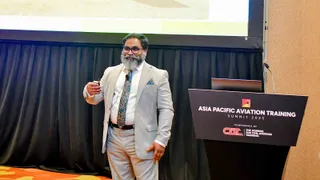The need for change in healthcare
Contact Our Team
For more information about how Halldale can add value to your marketing and promotional campaigns or to discuss event exhibitor and sponsorship opportunities, contact our team to find out more
The Americas -
holly.foster@halldale.com
Rest of World -
jeremy@halldale.com
by Jeremy Humphreys, Halldale Group Business Development Director
On the 18th February 2011 a 6 year old boy was admitted to Leicester Royal Infirmary in the UK. At 9.20 pm the same day he died in hospital, from cardiac arrest brought on by sepsis, following a tragic series of events and errors.
On the 4th November 2015 the doctor in the case, Dr Bawa-Garba, was given a 24 month suspended jail sentence for manslaughter on the grounds of gross negligence.
In June 2017 Dr Bawa-Garba was suspended from practicing for 12 months by the Medical Practitioners Tribunal Service (MPTS).
On the 8th December in a very unusual move the General Medical Council arguing that its own tribunal had been wrong to allow the doctor to continue to practice took the MPTS to the High Court and on 25th Jan 2018 successfully appealed the decision and had the MPTS decision overturned resulting in Dr Bawa-Garba being struck off the medical register.
The General Medical Council (GMC) is a public body that maintains the official register of medical practitioners within the UK and has as its chief responsibility ‘to protect, promote and maintain the health and safety of the public’ by controlling entry to the official register, and suspending or removing doctors when necessary. It argued in the High Court that the MPTS decision to suspend Dr Bawa-Garba was 'not sufficient to protect the public'.
Was the GMC right to believe this?
Commenting on Twitter, Jeremy Hunt, UK Health Secretary said he was 'perplexed' that the GMC acted as it did, adding that 'patient safety must be paramount'
Who was correct?
For me the answer is obvious. If we are to build a safer healthcare system then doctors and other practitioners must be able to express themselves freely about errors and near misses. Only by analysing error and introducing corrective measures can any health service prevent reoccurrence and increase patient safety.
The causes of the errors and the corrective actions are many. Some will be related to resources: over worked and fatigued staff making errors, some due to poor procedures that make it easy to get things wrong and also by failures of training that don’t ensure that the process critical steps are so ingrained in the everyday practices that they can’t be omitted.
The bottom line is that the healthcare system has to have an open and honest discussion about all these factors if it is to improve patient safety.
The UK government is committed at the highest level to changing the service from a blame culture to a learning culture so why did the GMC act as it did in the case of Dr Bawa-Garba?
Part of me wants to argue that it is another example of political correctness. That a child has died through errors by the doctor is tragic beyond my understanding and maybe the response of the GMC is that we must do something or, we must be seen to do something, to reassure the public that this will not happen again so we will increase the punishments heaped on the doctor who by the way must be living in her own world of agony anyway.
As a result of this High Court ruling (and many earlier examples of the mistreatment of “whistle blowers” by the system) young medical practitioners across the UK are expressing concern about what might happen if they reveal mistakes or problems. The discussion has led to concern expressed by doctors via social media that remarks from Dr Bawa-Garba’s e-portfolio were used against her in the criminal trial. That it is being talked about as a possibility has serious implications for the health service and patient safety.
If it had really wanted to protect the public the GMC would have supported the Medical Practitioners Tribunal Service’s decision to impose a one year suspension. This level of sentencing would have had a less suppressive effect on open and honest discussion about mistakes and failings of the system in the future.
The parallel with the airline industry, or lack of it, is startling.
In 1978 the pilot of UA 173 Captain Malburn McBroom, was trying to rectify a problem with the landing gear and failed to notice that the plane was critically low on fuel. He crash landed saving the lives of over 150 passengers, but tragically 10 passengers died and because of his mistake McBroom lost his pilot’s licence and ultimately died a broken man.
This story however has one happy outcome because the airline industry realised that if it was going to reduce airline fatalities, it needed to change its culture. They realised that ‘human factors’, rather than technical or equipment failure had been the cause of this accident. They changed their training programmes and mandated reforms that required pilots, engineers and attendants to discuss communication, teamwork and workload management, to encourage feedback, and for everybody to speak openly about everything needed to make the system safer.
We can only hope, when we look back on this sad incident in a few years’ time, that the death of this child leads to a realisation throughout the system that the culture of the UK NHS, and healthcare globally, has to change if patient safety is to be improved.


